Adopting a New Assessment Approach: Using SALG to Evaluate General Education Learning Outcomes
In Spring 2016, the General Education Office identified a need to improve its indirect assessment efforts. Working with …

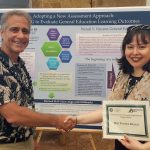
In Spring 2016, the General Education Office identified a need to improve its indirect assessment efforts. Working with …
The Department of History has been engaged in assessment work of our undergraduate major, identifying how we can …
This project presents a signature assignment for Indo-Pacific culture courses to assess the students’ cultural competency by discussing …
Student learning outcome (SLO) statements made by an educational program serve as targets for achievement and openly communicate …
In early 2019, ACCJC reaffirmed Kapi‘olani Community College’s accreditation status, but mandated a follow-up report and provided an …
Quantitative assessments in noncredit education typically evaluate participant’s satisfaction or experiences with courses and the instructor. Learning outcomes …
This project establishes a programmatic assessment plan for the Bachelors of Science program in Molecular and Cell Biology …
Many students find sequenced courses to be challenging due to prerequisite knowledge being the starting point in each …
During the 2020-2021 academic year, the English, Hawaiian and Foreign Languages, Speech and Communication disciplines in the Language …
This poster presents the process and results of an institutional assessment project that investigated advanced degree program learning …

The UH Manoa Anthropology Program, established in 1934, is the leading department of anthropology in Hawai’i, the Pacific, …
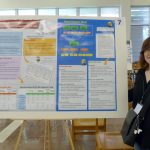
Given the complex nature of the requirements for the 6 degree programs offered by the department of East …

This poster describes the program student learning outcomes development process in the Dental Hygiene BS degree program. It …
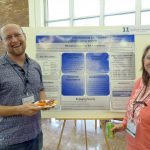
This poster describes strategies to build faculty capacity in curriculum design and alignment and ways to plant the …
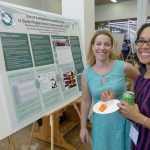
The Master of Science in Communication Sciences and Disorders (CSD) is nationally accredited and trains future speech language …
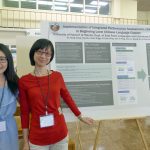
Exploring possibilities for, and effects of, Integrated Performance Assessments (IPAs) in the Department of East Asian Languages and …
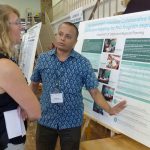
Faculty and doctoral students of the Department of Urban and Regional Planning (DURP) initiated a review of their …
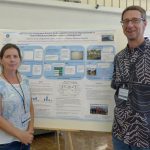
In this poster, assessment activities in Natural Resources and Environmental management (NREM) were designed to address three critical …
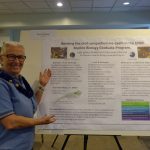
The Marine Biology Graduate Program has established an ad-hoc committee to review existing protocols of the comprehensive exam …
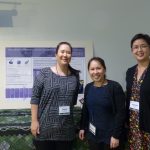
Children in Hawaii experience the worst oral health outcomes nationally. Seven out of 10 third graders experience tooth …
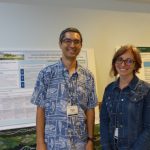
Less than 75% of Biological Engineering students have been assessed as meeting student learning outcome targets in the …
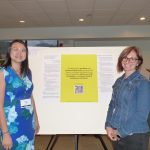
The Department of Linguistics Comprehensive Exam consists of two Qualifying Papers. In recent years the QPs have fallen …
In this workshop, participants will learn several simple techniques to create clear tables, charts, and one-page reports. Clear …
In this workshop, after faculty evaluate student learning evidence (e.g., written reports, oral presentations, exams), they start to …
Last Updated: 4 March 2024. Click here to view archived versions of this page. Note: The information and …